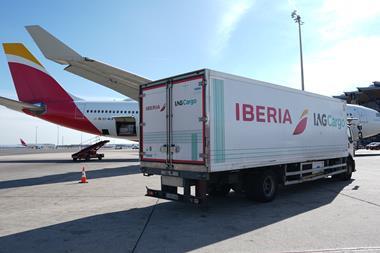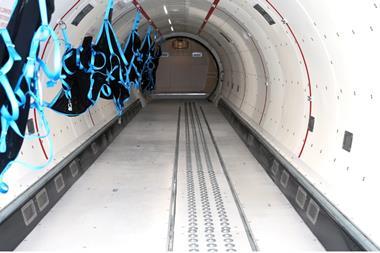Kuehne + Nagel delivered a "sensational" airfreight performance in the first half of the year as export increases from Europe, North America and Asia helped the logistics giant outpace the airfreight market with a 5.2% rise in volumes to 610,000 tonnes.
In addition, said Switzerland-based K+N, the expansion of services for customers from the perishables, pharma and industrial goods segments contributed to the "favourable development" for the first six months of this year.
In a conference call, it said it is looking to move away from the "unsustainable" commoditised area of the industry in favour of solutions.
The forwarder said European customers had benefited from the weaker Euro pushing up exports.
Also, its Freightnet solution, which is an online booking portal launched last year, had recorded double-digit growth in usage.
When asked whether K+N had won any volumes due to the problems of competitors, in a thinly veiled reference to the issues being faced by DHL Global Forwarding, chief executive Detlef Trefzger said this wasn't the case.
He said the growth was from its solutions approach and focus on certain segments.
However, like much of the industry, the forwarder's rate of growth has slowed as they year progressed: during the first quarter volumes were up by 6.7% on a year earlier, while in the second quarter the increase slipped to 3.7% year on year.
This slowdown was in part due to a first quarter boost as shippers turned to air as a result of the west coast US seaport strike situation.
However, air cargo turnover suffered this year, slipping by 2.2% in the first half compared with a year earlier to Sfr1,99bn ($2.1bn).
First-half airfreight operating profit, in earnings before interest and tax (ebit), was up by 11.5% to Sfr136m and gross profit for the period increased by 1.4% year on year to Sfr445m.
The conversion rate improved from 27.8% in the first half year 2014 to 30.6% in the first six months of 2015, its highest ever half-year level.
Trefzger said he was expecting airfreight rates to continue to decline as the year progressed, but he said this decline was in line with capacity additions and could therefore be planned for, unlike seafreight rates which were unpredictable.
Swiss companies have suffered in the first part of the year when the government took the decision to uncouple the currency from the Euro, creating a surge in demand and pushing up its value.
Trefzger said the company managed to largely mitigate currency effects.
“Given the demanding market environment and currency volatilities, we are very pleased about the development of our results in the first half of 2015.
"The solid performance in seafreight and the increased profitability in airfreight are to be highlighted.
"Due to our proven business model and the consistent implementation of our global strategy, we were able to increase the earnings for the period despite the stronger Swiss Franc."
He later said two thirds of the company's overall ebit growth was "eaten up" by currency effects.
The company declined to provide a volume outlook for the year ahead because of the uncertain political and macroeconomic conditions and customers were unable to provide reliable estimates.










